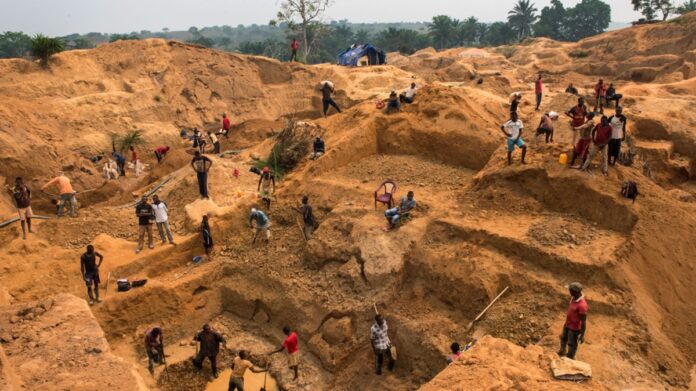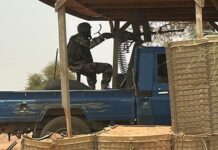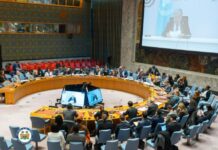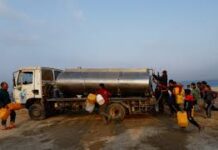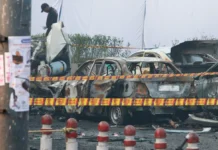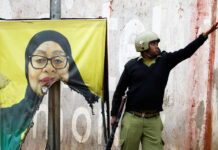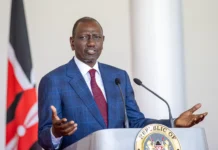Written by Lisa Murimi
A Congolese mining company sanctioned by the United States has rejected allegations it is linked to armed groups and mineral smuggling, claiming rebel control — not corporate misconduct — is behind the illicit coltan trade in eastern Democratic Republic of Congo (DRC).
The Cooperative des Artisanaux Miniers du Congo (CDMC) was blacklisted Tuesday by the U.S. Treasury Department, accused of trafficking minerals from Rubaya, a conflict zone in North Kivu province.
Also sanctioned were the Coalition des Patriotes Resistants Congolais-Forces de Frappe (PARECO-FF) — an armed group allegedly aligned with Congo’s military — and two Hong Kong-based exporters.
In a strongly worded statement, CDMC said it “categorically rejects” the accusations and is itself a casualty of the region’s instability.
“We are not the perpetrators — but the primary victims — of the armed conflict and pillage that have destabilized this region,” the company said.
“The presence and taxation of mining activity by armed groups such as PARECO-FF, and more recently the M23 rebels, have prevented CDMC from exercising lawful control over its concession.”
Rubaya, seized by Rwanda-backed M23 rebels in April 2024, produces roughly 15% of the world’s coltan — the ore refined into tantalum, a heat-resistant metal vital for smartphones, aircraft, and medical devices.
The sanctions reflect Washington’s broader strategy to disrupt financing for armed groups in the Great Lakes region. However, they risk deepening tensions between the U.S., Kinshasa, and Kigali, given Rwanda’s alleged support for M23 — claims Kigali denies.
Analysts warn that without stronger regional diplomacy, sanctions alone may drive the trade further underground, complicating traceability efforts in the global supply chain.
For the DRC, the case uncovers a governance challenge: enforcing lawful mining operations in territories where state authority is weak and rebel taxation is entrenched.
For the U.S., it tests the balance between penalizing entities linked to conflict minerals and ensuring legitimate actors in volatile regions are not collateral damage in its sanctions regime.
Written by Lisa Murimi
The United States’ recent approval of a $346 million arms sale to Nigeria has come against the backdrop of mounting scrutiny over the Nigerian military’s conduct in counterinsurgency operations.
While Washington frames the sale as a strategic move to bolster a key West African partner, Nigeria’s defence leadership is grappling with balancing operational effectiveness and civilian protection.
The U.S. State Department confirmed Wednesday that the deal—pending Congressional approval—includes over a thousand MK-82 500-pound bombs, 5,000 precision rocket Kill Weapon Systems (APKWS), laser-guided bomb kits, and high-explosive rockets.
The package also comes with technical support personnel, aimed at enhancing Nigeria’s ability to confront Boko Haram, Islamic State West Africa Province (ISWAP), and other armed groups destabilising the country’s north and Gulf of Guinea region.
“The proposed sale will improve Nigeria’s capability to meet current and future threats through operations against terrorist organisations and to counter illicit trafficking,” the State Department said, underscoring Nigeria’s role as a regional security anchor in Sub-Saharan Africa.
On the ground, Nigeria has intensified air and ground offensives, with the military reporting 592 insurgents killed in Borno State in the past eight months. “Our air campaign is quicker, more precise, and more surgical,” Nigerian Air Force Chief Hasan Abubakar stated earlier this week.
Yet these operations have drawn human rights concerns, particularly over civilian casualties from airstrikes. In candid remarks in Abuja, Defence Chief of Staff General Christopher Musa defended the armed forces, stressing their commitment to avoiding unnecessary harm. “We often abort operations to avoid civilian casualties… this has, in part, prolonged the conflict,” Musa said. “We respect human rights and value civilian lives.”
Musa also argued for a review of international laws governing armed conflict, claiming that current frameworks impose stringent restrictions on state actors while leaving non-state armed groups—who “kill at will”—largely unchecked. He noted that Nigerian troops receive ongoing training in human rights and international humanitarian law, both domestically and overseas, to improve operational compliance.
From an international relations perspective, the arms sale reflects Washington’s pragmatic security engagement with Nigeria—a nation whose stability is critical to regional counterterrorism, maritime security, and economic development. Nigeria’s role as Africa’s largest economy and a major troop contributor to peacekeeping missions further strengthens the rationale for such cooperation.
However, the sale also places Nigeria’s military under greater international observation. The inclusion of munitions like MK-82 bombs, which have drawn controversy in other conflict zones, heightens the importance of strict targeting protocols to align military effectiveness with humanitarian obligations.
For Nigeria, the advanced weaponry could deliver a tactical edge in neutralising insurgent leadership and disrupting logistics networks. For the U.S., the transaction is a calculated investment in a partner whose internal security is closely linked to broader regional stability.
As both countries deepen security cooperation, the challenge remains: demonstrating that enhanced military capability can coexist with the protection of civilian lives, thereby reinforcing—not undermining—legitimacy in the fight against violent extremism.









